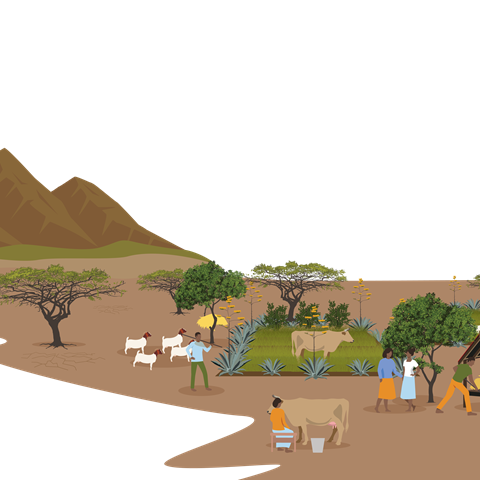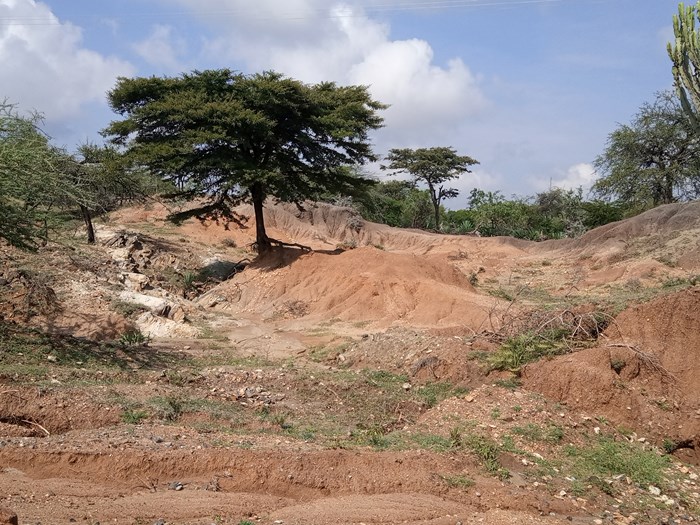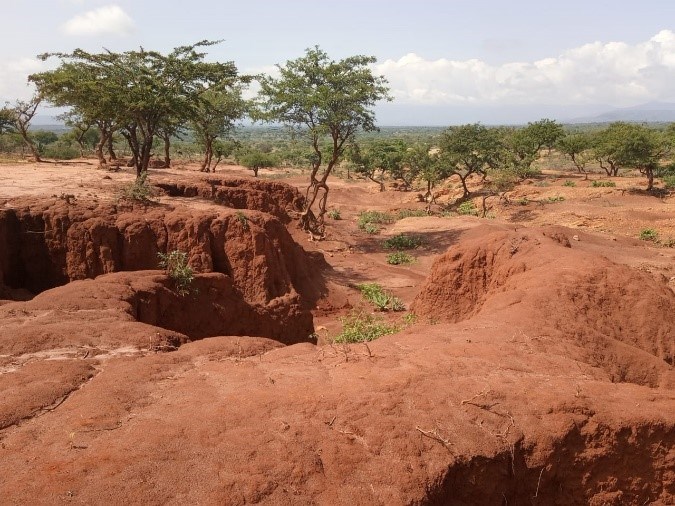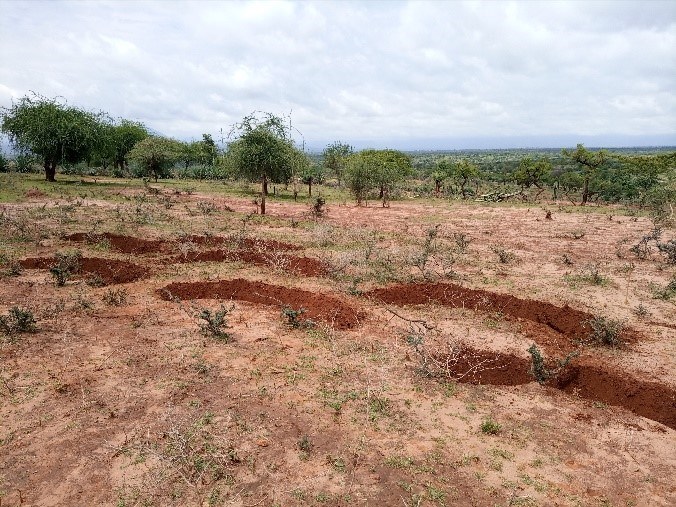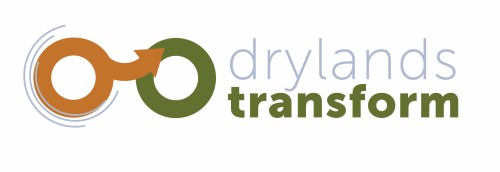The concept of a livestock café is an excellent and novel way of engaging with farmers and local communities through a participatory approach of having field experiments.
Livestock cafés as locally based stakeholder platforms will work as meeting places where exchange and sharing of knowledge will happen. At the cafés, different new technologies will be tested and farmers can visit the café´s and see different ways to restore and manage rangelands in a sustainable and improved way. At the cafés, they can meet other farmers, discuss and feed in their experience and knowledge to the platform. The experimental grass plots will also be utilized for grazing by livestock under different periods of time, hence the term livestock café.
Currently in the establishment phase of the cafés
Within Drylands Transform there will be four sites where the cafés will be established; West Pokot and Turkana in Kenya and Napak and Moroto in Uganda. All in the Karamoja region. All livestock cafés will be the rough size of 10 ha and currently we are in the starting phase of fencing the areas and building of café keeper’s houses. One house in each café.
Livestock café in West Pokot
In West Pokot, the land we were offered to use are severely degraded with no top soil left. At this site the land was privately owned but the family had no problem to let the land be demonstration site for the project. Local officers from Ministry of Agriculture were also welcoming the project and emphasized to engage the community already from the beginning so that they can take care of the site and own the project.
At the time of signing contracts of borrowing the land for the project period, 33 community members attended and were explained to that the area will be a knowledge sharing hub and a demonstration site. All the community members present agreed to embrace and support the project’s activities. It was carefully explained to the landowner that the ownership will be retained right after the exit of the project, and then as a rehabilitated site with abundant of fodder and new opportunities of how to use the site.
The GPS points around the site was recorded and Dr. Mureithi also demonstrated on how the half-moon soil erosion bunds are done and for what purpose to the local community members and the proposed caretaker of the site. Together they prepared a tool from local material that could be used when marking where to dig the bunds.
Next step for the livestock cafés
We will establish experimental plots at each of the Livestock Cafés with seeding of different perennial grasses, erosion control measures, cultivation of high quality fodder banks and management of tree densities and grazing pressure. We will have tree nurseries where different local and indigenous trees will be grown and this process will be demonstrated to people in the area. Kitchen gardens will also be show-cased.
Benefits for the communities
The aim of the cafés is that they should function as co-learning hubs. Local herders/farmers, extension workers, local policy makers and researchers, will discuss, exchange ideas and experiences and learn from each other in formal and informal ways. As part of this, different activities can take place, e.g. value-chain improvement activities, training on possible income generating activities and products such as grass seed, hay, honey, and other livestock products like milk. In addition to demonstrating rangeland restoration, agricultural practices that supports household nutrition will be included.
What happens when the project is over?
When Drylands Transform is finished, the cafés will be taken over by local communities to potentially be managed as local enterprises by communities, groups or individuals.
